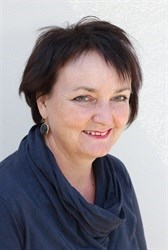
"The problem is widespread and not limited to any one social, ethnic or economic segment of our society," says Professor Rachel Jewkes, Director of the Gender & Health Research Unit of the South African MRC. "One of the main reasons rape victims are reluctant to step forward is that they don't think anything will come of it. Also, they frequently fear their rapist (especially if he is a partner) and may not want him to be prosecuted and then have to face victimisation, as the cause of his incarceration, from family and friends. Many victims also perceive rape as a shameful and private act and they seek comfort, not the further trauma of having to talk to strangers."
Equally, if not more distressing is the fact that, of the few cases that are reported, only a fraction ever lead to convictions. "For every 100 reported rape cases, only six get convicted," says Professor Jewkes. "In 50% of the cases, no arrest is made - and this is not due to the perpetrator being unknown. The reality is that the cases are poorly investigated by the police, improperly prepared and generally not given high priority. Police gender bias is a contributing factor, as is an inordinately heavy workload - the police's capacity for investigating all cases (rape or otherwise) is generally low."
Professor Jewkes is just one of a number of experts in issues of domestic, gender and sexual violence who serve as specialist advisors to the Vital Foundation, a local funding and information sharing body that supports non-profit organisations and the public in their quest to eradicate woman and child abuse in South Africa. The Vital Foundation provides a platform (via its website and sponsored media channels) for organisations dedicated to the care of victims of abuse to promote their work, and for victims themselves to easily access their services. It also offers funding to these organisations. R1 from every Vital Health Foods supplement sold through leading retail outlets around the country is donated to the Vital Foundation - to date, the Foundation, which was founded in August 2013, has raised over R6.9-million in this way.
With 161 organisations currently registered on vitalfoundation.co.za, all easily located via a choice of 'provincial', 'target group' and 'service' search mechanisms, both information and access to crucial help is available to victims of abuse on a 24/7 basis. One of the many organisations that has benefited significantly from the work of the Vital Foundation is the Greater Rape Intervention Project (GRIP), which provides humanitarian assistance, rehabilitation, support and counselling to survivors of rape, sexual assault and domestic violence, as well as to those infected or affected by HIV/Aids. Says GRIP's CEO, Lungile Kubheka: "The R40,000 donation we received from the Vital Foundation allowed us to undertake critical monitoring and evaluation staff training, an action that we are confident will further GRIP's advocacy efforts as well as our fundraising targets."
Kubheka concurs with Jewkes when it comes to the reporting and conviction challenges in cases of woman and child abuse in South Africa. "There are still many barriers, especially in the first points of contact for victims, and police stations remain a huge stumbling block," she says, explaining that police unit appraisals take into account the number of open cases a station has on its books - with the more cases, the less favorable the assessment. "As a result, survivors are often discouraged by police officials - the very people who are supposed to protect them - from even opening cases."
According to Kubheka, South Africa's dominant patriarchal culture and high incidence of unemployment is strongly to blame for the country's atypically high incidents of domestic violence. "Entrenched gender stereotyping, the desire for dominance and obsolete notions of machismo in South Africa perpetuate violence against society's most vulnerable citizens - women and children - and represent a displacement of aggression in which men feel able to reassert their power," she says, adding that, "Many women also feel they simply have nowhere to go."
"It's no longer simply enough for the nation to scratch its collective head for reasons to explain what lies behind the abominable levels of male violence so prevalent in our burdened society," says George Grieve, Managing Director of Vital Health Foods. "The time has come to put words into actions and, by creating an easily navigable channel for those suffering abuse to directly access the services of the organisations most relevant to their needs, the Vital Foundation is doing just that.
"What's more," Grieve adds, "The Foundation provides an avenue for members of the public to actively get involved in that funding is sourced through Vital products sales via our 'R1 Makes a Difference' campaign, the premise being that by investing in your family's health, you are also helping to build healthy homes in South Africa."
Figures come from research done in Gauteng in 2010 by Gender Links, together with the MRC.